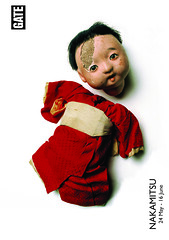Theatre vs. film
There is so much good stuff which came out of the Improbable day on Theatre -
I really suggest you take a look
Here’s something reported:
Theatre can compete with film as an exciting artform (get more people out of cinemas and into theatres.) — I think blogs can play a part in this…
Convener(s):Rebecca Brown
Participants: Lawrence O’Connor, Tiffany Ball, Jamie Smith, Natalie Schwartz, Mark Conway, Catherine Eccles, Rich Rush, Anna Newell, Mark Wakling, Suzanne A, Isla Tangsett, Will Bock, Ian Bevins, Chloe Simto, Esme Appleton, Phil E, Morrn Macbeth, Sharon Thomson, Michael Dempsey, Trish Lee, David Mc Groarty, Sharon Kean, Sarah , Sussanne C? , Simon Casson, Lisa Hammond, Maddy Costa
Summary of discussion, conclusions and/or recommendations:
Compared with film, in live theatre you can create certain kinds of illusions, the audience are involved in a more immediate way.
There are things done in film which you cannot do in theatre due to practical constraints but there is magic created in theatre that cannot be created in film.
- The audience are thought to be more passive in film and less passive in theatre (although this was debated). There is a sense that when you are watching a film the film is a finished object whereas the theatre is unfinished and unfolds infront of you. To this end, one suggest made that, perhaps, more heckling should be done in theatres because you can have an impact in what’s being presented.
- A lot of debate arose around children being taken to the theatre, schools & school groups. Suggestions were made that it would benefit the future of theatre if children were taken to events that were more meaningful to them, and helped to form an in-terest and habits for the future in terms of developing an interest in theatre rather than a sense boredom and resignation in terms of having to see works based on set-texts. Money was a factor in this in that some theatres supply cheap tickets to schools for shows which aren’t doing well and/or and ‘good enough’. An example was given of a child being sent to see Giselle for these reasons rather than something of genuine relevance or appeal to the chid. Bad theatre is more cringe-worthy than bad film as the audience and the practitioners are able to experience ‘Live Embarrassment’.
Why are pantomimes so popular? Because they’re fun!
- Experience
Important to the experience of theatre:
Hospitality.
Making the audience feel that their prescense ‘counts’.
That they are included.
That they are welcome.
That they have opportunity for discussion.
Part of a community.
Shared social experience with the actors.
The audience is NOT just a consumer they are PART OF an ephemeral community.
There was a general idea that going to the cinema was easier and more fun than going to the theatre. For example: popcorn & drinks. There is popular sense of ‘The whole experience’ of attending cinema but it was debated whether this ‘sense of experience’ exists for going to the theatre.
We all should look at the image of theatre in society: what does it mean to go to the theatre? And a participant made the point that in encouraging children to go to the theatre they felt that there are barriers to their attendance (she was asked by one child ‘but what should I wear…’) whereas these barriers are not present in attending the cinema.
- Theatre is considered to be ‘work’ i.e. often more is required of the audience whereas film is often to be considered to be ‘pleasure’ i.e. passive.
- Theatre restricts itself to a ‘standard audience’ whereas film can market to a much wider audience. This was attributed to mainly economic factors.
Theatre is, typically, thought to be a middle class ghetto-ised cultural pursuit.
Information if often spread by word-of-mouth amongst 1) ‘the chattering classes’, 2)’people-in-the-know’, 3)those who read the ‘right magazines’. Theatre and its audience form a ‘subculture’. It is elitist & exclusivist.
Suggestions were made to resolve this.
It is all of our responsibility to Establish new initiatives to promote theatre to a broader audience through:
New Web sites
New Magazines
‘Spread the word’
Communicate
- Point was made about a participant who went to see Richard II as a child without expectations or prior-experience but for whom the experience was powerful & memorable.
- If theatre seeks to approximate to cinema’s popularity it has to take itself to people who would not otherwise go.
This does not have to mean compromising the content of the theatre or condescending to a new audience.
Theatre has to get out of its ghetto and shamelessly promote itself by putting itself in front of people where THEY are.
- THEATRE HAS FAILED!?
- Recognise cinema as a creative resource. E.g. take from films to ‘enhance within theatre’ such as ‘slow motion’.
- There was an interesting point made that individuals are intrinsically conservatism. People do/don’t what they have always done/not done and theatre should challenge those habits.

